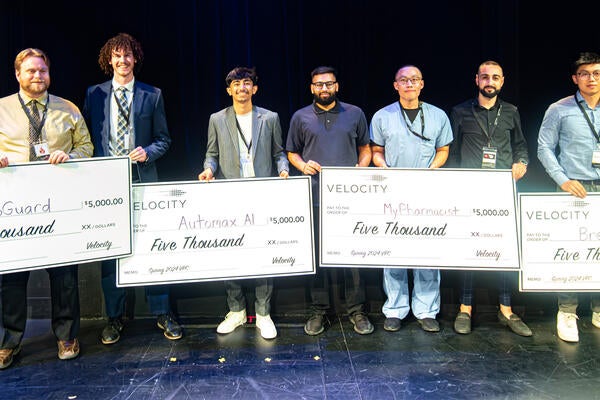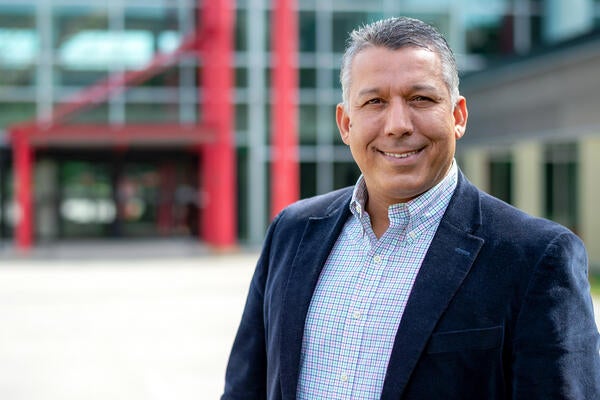The Natural Sciences and Engineering Research Council of Canada (NSERC) selected seven researchers from the University of Waterloo to receive a funding boost to further their transformational and potentially groundbreaking research.
The Discovery Accelerator Supplement (DAS) recipients named by NSERC today are among more than 120 Waterloo researchers who have received more than $21 million to further their research through programs such as Discovery grants and grants for equipment.
“This funding supports transformational research at Waterloo in many ways spanning the areas of quantum information science, renewable energy, nanotechnology, pharmaceuticals and human neuroscience,” said D. George Dixon, vice-president, university research at Waterloo. “It recognizes key projects that are highly innovative providing the means to take the research to the next level, as well as projects in the earlier stages of research and the cost of infrastructure that is critical to all research at Waterloo.”
One of the seven to receive a supplement, Ben Thompson, an associate professor in the School of Optometry and Vision Science, will use the $120,000 supplement along with a $310,000 Discovery grant to research why human brain plasticity decreases with age and how it can be restored.
Brain plasticity is vital for developing functions, such as vision, and learning new skills and is at its prime in young children. As humans get older, brain plasticity decreases and makes acquiring new skills or relearning body functions much more difficult. Thompson hopes his research will help adults requiring rehabilitation, such as those recovering from strokes, to relearn functions such as proper eyesight, speech and limb control.
“The DAS funding is truly significant and will enable me to move the research forward at a much faster pace,” said Thompson. “This funding will allow me to hire a high-quality research team and leverage the international partnerships involved in this cutting-edge research.”
The other researchers chosen by NSERC for supplemental funding in addition to a Discovery grant are:
- Therese Biedl (Cheriton School of Computer Science): Producing graph drawing algorithms with performance guarantees that are provable within a factor of the optimum.
- Lap Chi Lau (Cheriton School of Computer Science): Creating linear algebraic techniques to design better approximation algorithms and faster exact algorithms for graph problems.
- Soo Jeon (Mechanical and Mechatronics Engineering): Leveraging sensor technologies, intelligent decision making and control theories, and human hand and arm movements to advance motion control for robot manipulators.
- Rahim Moosa (Pure Mathematics): Furthering the role that model theory plays in recognizing, formalizing, and facilitating analogies between different geometric contexts.
- Sander Rhebergen (Applied Mathematics): Developing new algorithms for more efficient and accurate simulation tools.
- Lin Tan (Electrical and Computer Engineering): Building novel program repair techniques that automatically generate fixes for real-world bugs.








